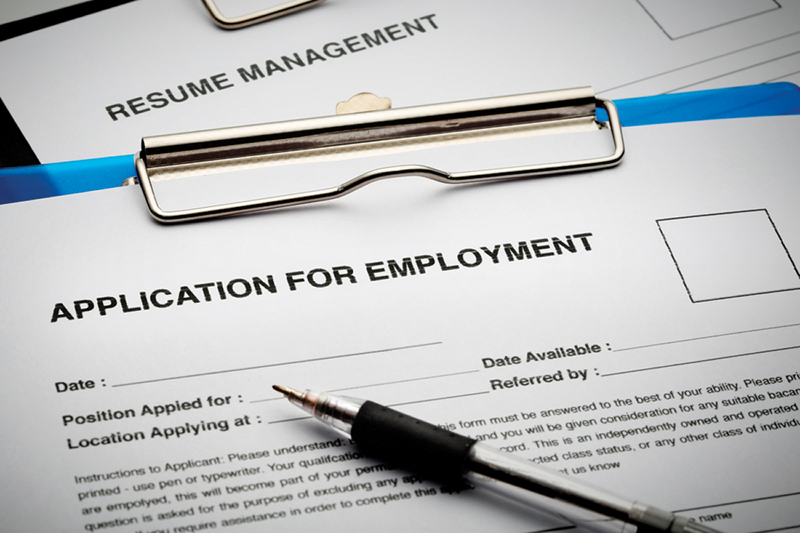You Want a Raise?
That’s a complicated issue in the plastics industry of today…
Previous Article Next Article
By Dennis Gros
President, Gros Executive Recruiters, Franklin, Tennessee, USA
You Want a Raise?
That’s a complicated issue in the plastics industry of today…
Previous Article Next Article
By Dennis Gros
President, Gros Executive Recruiters, Franklin, Tennessee, USA
You Want a Raise?
That’s a complicated issue in the plastics industry of today…
Previous Article Next Article
By Dennis Gros
President, Gros Executive Recruiters, Franklin, Tennessee, USA




From: The Recruiter
To: The Employer
For every year of the Gros Executive Recruiters salary survey, we ask this question: “What’s your most difficult hiring challenge?” And every year, you reply overwhelmingly with one voice: “Finding Qualified Candidates.” In 2014, this answer garnered 70% of 455 responses.
The challenge of attracting the best workers is more than an issue of attractive pay. As an industry, we need to compete with the information technology industries for the brightest minds. And for that, we need to shine. We need glamour. Young people are picking the hottest new companies with the latest and greatest capabilities. If your equipment and your technologies are not cutting-edge, don’t expect to attract top-notch talent.
The obstacles facing management include the need to conceptualize the job. That is, re-think and re-define the job function, because many of the archived job descriptions don’t fit current circumstances. You need to prove to them and show them—both before and during the hiring process—that you have those leading-edge technologies because the traditional image of manufacturing is dirty, dingy, dark, and dusty. That image is your enemy.
If your equipment and systems aren’t contemporary and leading-edge, it’s almost impossible to attract the top minds that are needed to generate ideas, products, and processes that will keep your company moving forward. So your capital investments actually pay for themselves twice: on the production floor and in the Human Resources office. Just like in your production process, outdated equipment leads to a downward spiral in the qualifications of your new hires.
Employers also should understand that twenty-somethings are motivated by accomplishment. They want the excitement, the adrenaline high of contributing to the organization and bringing a new product to the marketplace. They want the psychological reward of discovering, creating, and building the products that make a positive impact on other people’s lives. In a tangible form, you can demonstrate that opportunity. I wish you a successful hunting expedition!

In the midst of this renaissance of American manufacturing, plastic companies will have engineers, quality experts, sales personnel, and tech-savvy workers at the top of their hiring list in 2015. And the number of jobs will exceed the number of people who can step in and perform immediately. So if you’re in one of those professions, that’s good news, right? It’s a matter of supply and demand—and a great time for a pay raise!
Not so fast, plastics professional. Let’s take a closer look at the factors that affect the dollars and sense of your paycheck.
Why They Need You Now
Here are the reasons your job opportunities will bloom in 2015:
- Expansion. It’s not that the American economy is amazingly robust. Rather, it’s the rest of the world that is doing so poorly. So by comparison, the USA is the best location globally for manufacturing over the next few years. U.S. manufacturers are proving they can compete on quality and price with the best in the world. To be sure, nearly all economists are predicting good economic growth in 2015. For plastics companies specifically, the supply of North American gas is plentiful and low in cost—giving U.S. plastics companies a boost both domestically and in export markets.
- Machines replace hands. The trend of replacing line workers with machines (automation/robotics) also will continue. Therefore, hiring requirements will be for people who think and do, not just people who do.
- Replacing retirees. More work in the plastics industry requires more people, but there aren’t enough experienced sophomores to fill the jobs as the senior workers retire. At this time, workers age 55-64 represent more than 20% of the overall workforce, and sometimes as high as 40% in skilled trades. If you are one of the few with plastics experience, expect to be in demand. Not enough young workers are embracing work in the plastics industry, or manufacturing in general, to close the gap.
A Step Back in Time
“How’s business?” At meetings and conferences, that’s the question you can expect to hear right after, “Hi, how are you doing?” The answer is almost always couched in two frames of reference—pre-recession and post-recession—such as, “I’m doing 10% better than in 2007.” (Rarely do they detail the metrics of red ink in 2009 and 2010.) As time goes by, the memory doesn’t hurt so much, but it’s ever-present.
It’s likely that plastic companies will approach hiring with utmost caution in 2015, because profitability, while good, remains a tenuous proposition, affected by costs beyond control from:
- healthcare insurance for employees,
- costs of resin and other commodities, and
- costs of regulatory compliance.
Which Brings Us to your Paycheck…
You can slice it anyway you want, but the reality is that paychecks in the plastics industry are barely keeping up with inflation. According to the federal government’s U.S. inflation calculator, you would need to earn 14.7% more today than you did in 2007 just to keep up with inflation—and that’s exactly where plastics industry salaries are today. But that is largely due to the unprecedented 11% jump in average salaries in 2013. I don’t expect an 11% increase again because financial realities and corporate profits don’t support it; 2013 was a catch-up year.
As a result, American workers, including those in the plastics industry, are facing a break-even paycheck. All of us are paying higher prices for gasoline, utilities, insurance, food, and taxes, and there’s little financial wherewithal to move ourselves forward. There’s also no leftover money in worker paychecks to ensure their futures once they leave the workplace.
Here’s one example of how to look at workplace pay for managers and employees in the plastics industry. In 2007—just a year prior to the economic downturn—business was good. Employers were placing recruiting assignments with our firm for process engineers at a target compensation of about $85,000. Today, employers are placing recruiting assignments for the same position at about the same target compensation.
Company owners shouldn’t be accused of hoarding profits. In plastics, the margin on every order is extremely tight because economic advantages are being smothered by a weak economy. So until the business environment improves and employers feel more secure in boosting wages to outstrip inflation, actual pay will be an issue.
Hot Job Titles
It pays to be in an industry that pays. To find the most fertile market in plastics, look at your product, but don’t stop there. Look at your customer’s product, and its demand in the marketplace. When you’re working within a profitable market niche, your boss has greater latitude to offer pay increases.
Automotive: Car sales are up, and so is the need for plastic components. Just like their dealers, car manufacturers have earned their reputation as skilled negotiators. There’s only a tiny margin of profitability in each piece, but when you’re making millions around the clock, cash flow is good and overall profitability is not bad. Plastic manufacturers making parts for the auto industry will be hiring quality engineers and managers, automation engineers, and process engineers.
Building products: With construction markets expected to have a second straight solid year in 2015, companies will need workers to meet the growing demand for energy-efficient plastic building products, creating demand for sales, marketing, and computer-savvy manufacturing workers and design engineers.
Packaging: No area of plastics is hotter than this, as plastics continue to make inroads because of their advantages in providing strong durable packaging at a lower cost and their ability to meet the sustainability needs of consumer product goods and medical companies. In highest demand: workers who can meet the challenging design characteristics with both their software skills and knowledge of materials.
Medical: The medical components market is simply booming as medical device manufacturers continue to innovate to bring lower-cost, higher-quality products that provide better health-care results. Their thirst for plastics products is insatiable because they provide better performance at lower costs. That’s driving the demand for engineers and material experts who can design products that give companies an edge in the marketplace.
Final Thoughts
As professional recruiters, we are rich in job inquiries now, but we also see that companies are reluctant to pull the trigger and invest money in not just a salary, but relocation costs, overhead, and benefits.
Why? It’s the economy. Wage increases need to begin outpacing inflation. And for that to happen, we need our elected representatives in Washington, D.C., to generate an economic environment that fosters real growth. We need regulations and policies that help businesses compete globally and which do not serve as a barrier to growth and innovation.
ABOUT THE AUTHOR:

Dennis Gros is founder and president of Gros Executive Recruiters ( GrosRecruiters.com). He founded the forerunner of Gros Executive Recruiters in 1989 and moved operations to the Nashville, Tennessee, area two years later. The firm has placed an aggregate of more than $45 million in new employee starting salaries. Gros is a former chapter president for the Society of Plastics Engineers, and the firm is an active member of SPI: The Plastics Industry Trade Association.
